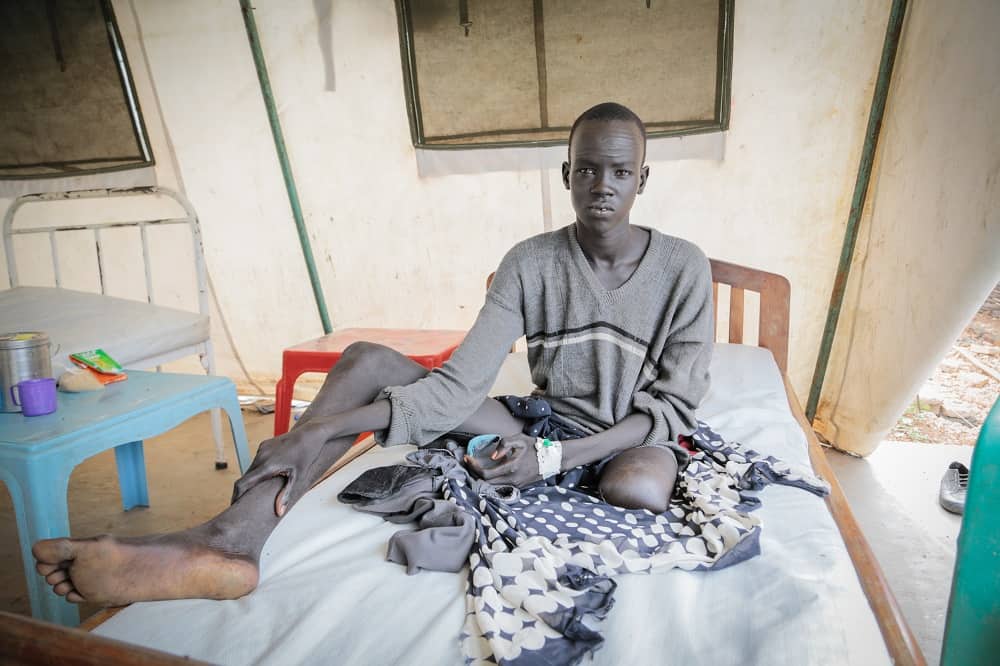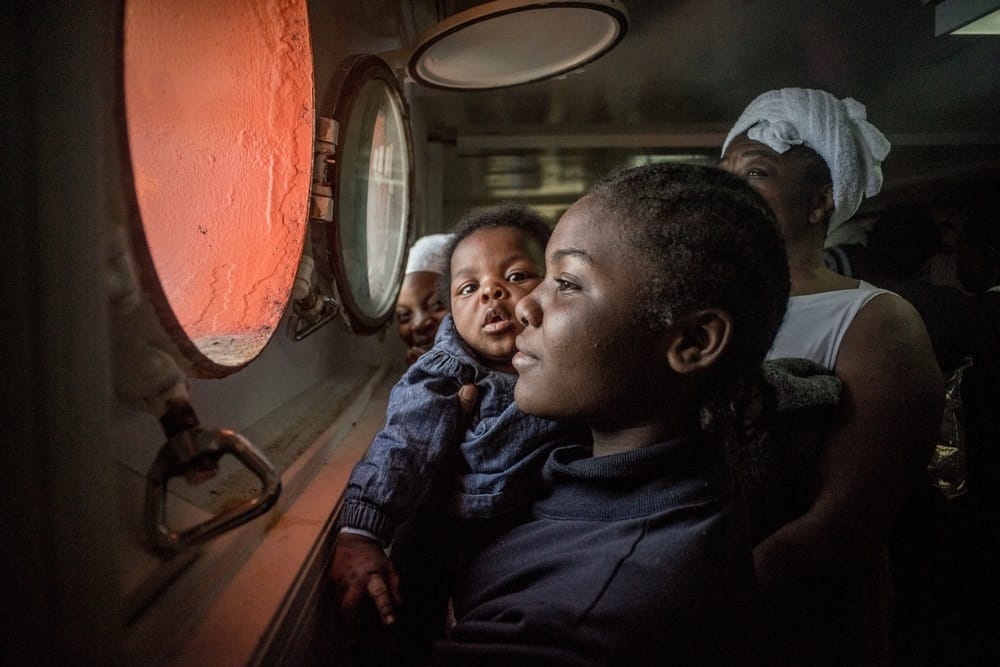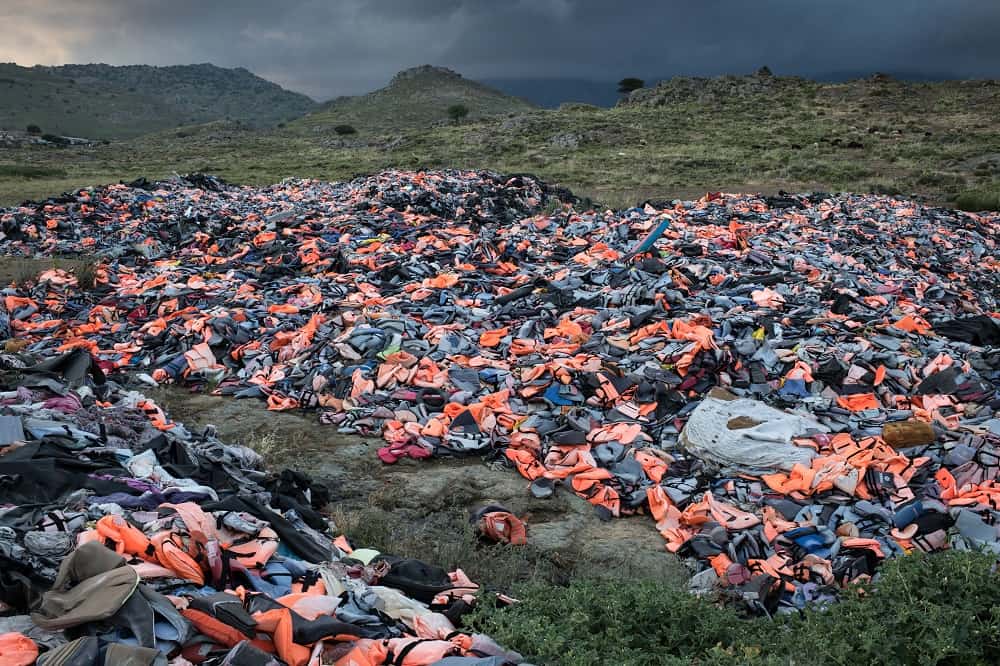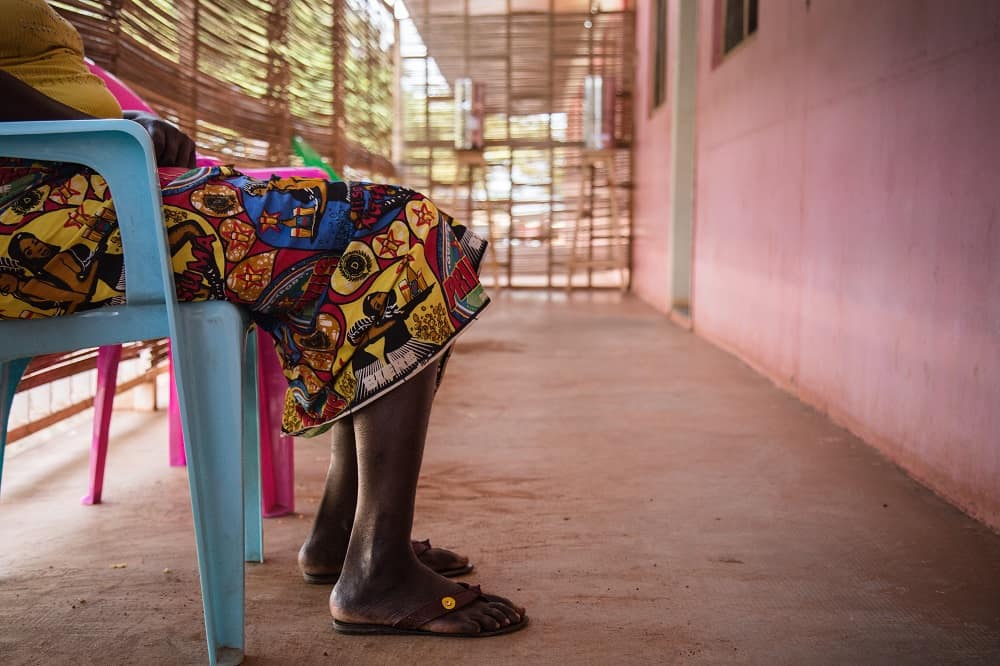Snakebites; mental health emergency in Lesbos; sexual violence in the Central African Republic; and other stories you might have missed this month

Banywich Bone had to have his leg amputated above the knee after being bitten by a snake in South Sudan.
19 September was observed as the first-ever International Snakebite Awareness Day. Every year, an estimated 2.7 million people are bitten by venomous snakes, resulting in death for more than 100,000 people and life-long disfigurement and disability for 400,000 more. In 2017, MSF admitted more than 3,000 snakebite patients to its clinics, predominantly in sub-Saharan Africa and the Middle East.
Photo: Pierre-Yves Bernard/MSF

A woman and her baby look through a porthole on the Aquarius, a rescue vessel operated jointly by MSF and SOS MEDITERRANEE to assist people in distress in the Mediterranean Sea.
On 22 September, the Panama Maritime Authority (PMA) announced it had been forced to revoke the registration of the Aquarius, the only remaining non-governmental search and rescue vessel in the Central Mediterranean. Both organisations denounced the decision of the PMA as it effectively condemns hundreds of men, women and children who are desperate to reach safety to a “watery grave”.
Photo: Yann Merlin/SOS MEDITERRANEE

Thousands of life jackets left behind by arriving migrants are gathered at a dump on Lesbos Island, Greece.
The policy of containing asylum seekers on Greek islands has led to more than 9,000 people, a third of whom are children, being stuck indefinitely in the Moria camp in Lesbos, which has a maximum capacity of 3,100 people. This has led to an unprecedented health and mental health emergency amongst the inmates, particularly children, in Moria.
Photo: Robin Hammond/Witness Change

Tatiana was raped by armed men over the course of several days in Bambari, Central African Republic, before she could flee to Bangui, the capital. She has been receiving treatment at MSF’s sexual violence clinic in the Hopital Communautaire for the last three months.
Since it opened in December 2017, nearly 800 patients have been treated at the clinic. Most of the patients visiting the clinic are women, and a quarter of them are under the age of 18. This stream of patients provides a glimpse into the huge level of need in a country riven by conflict, and lacking both reliable healthcare and a functioning judicial system.
Photo: MSF/Olivia Watson












